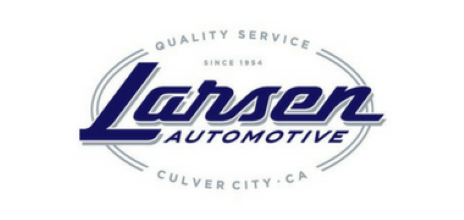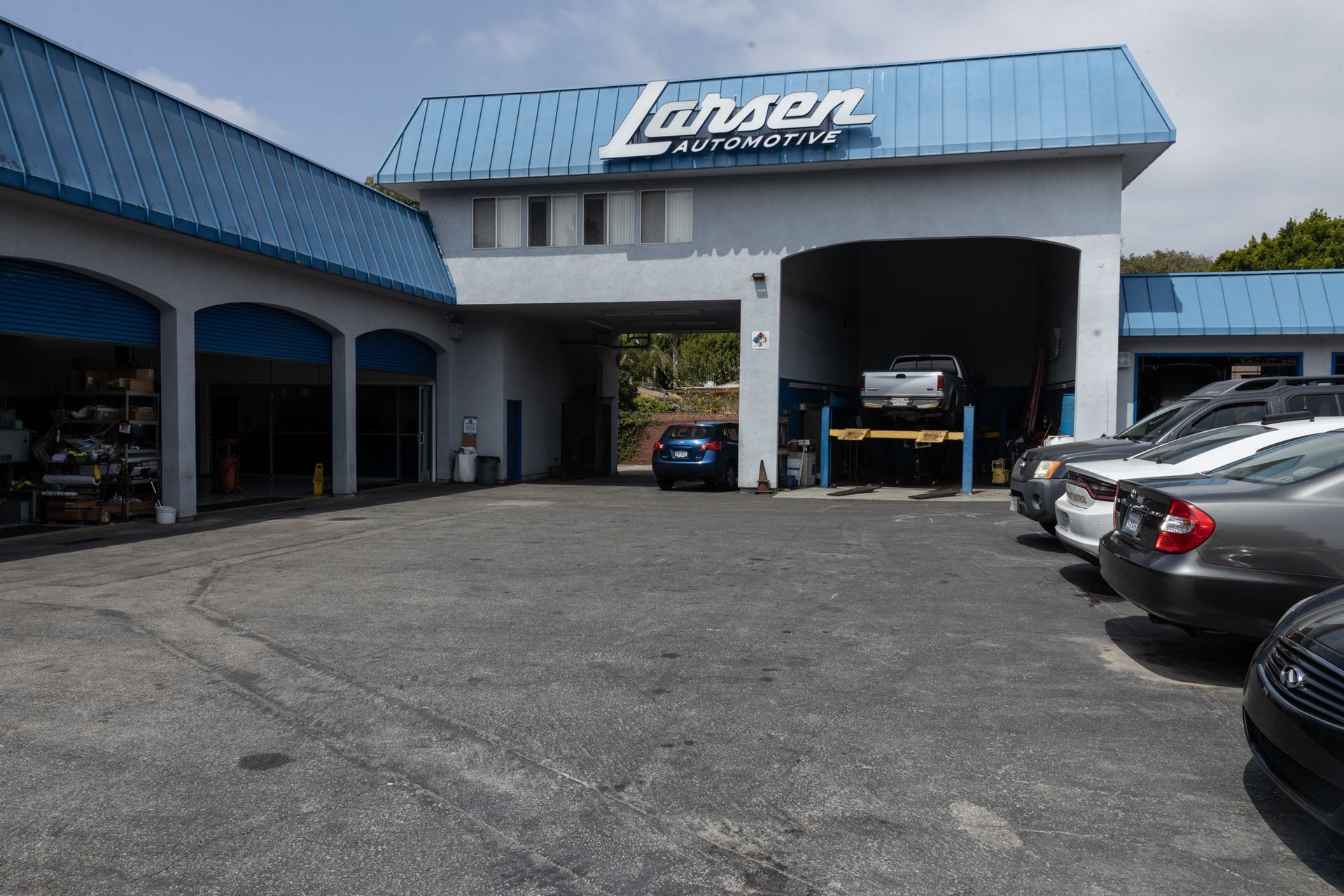Loading ...
Missing business hours data / Error occurred while getting the data.
Choosing the Right Engine Oil: Comparing Conventional and Synthetic Options for Your Vehicle
A Simple Guide to Help You Understand the Differences in Oil Types

Welcome to our January blog at Larsen Automotive, where we're dedicated to ensuring the longevity and health of your vehicle. This month, we delve into the world of automotive lubricants, exploring their essential role in your vehicle's performance. We'll be shedding light on the various types of oils and their unique benefits, helping you make an informed decision for your vehicle. Have questions about the right oil for your car? Don't hesitate to drop by and consult with our expert team today!
The automotive industry has seen significant advancements in engine technology over the years. One area that has evolved in tandem is engine oil. Today, you'll find conventional and synthetic oils on the market, claiming optimal performance. But are there notable differences between the two? This blog will explore the distinctions in performance, requirements for modern vehicles, cost implications, and current consumer trends in the world of engine oils.
Are you curious about the distinctions between conventional and synthetic oils for your vehicle? Let's simplify these concepts to enhance your understanding of their differences, ensuring you make the most informed choice for your vehicle.
How Are Conventional and Synthetic Oils Different?
Conventional oils come from underground crude oil, while synthetic oils are made from special chemicals. This difference in how they are made can affect how well they work in your vehicle.
Conventional Oils:
These are derived directly from crude oil extracted from the earth. The process involves refining the crude oil to various degrees to produce motor oil. This natural base means that conventional oils contain a mix of different hydrocarbon chains with varying properties. While effective for basic lubrication, these oils can have impurities and inconsistencies in their molecular structure, which might affect their performance under extreme temperatures or heavy engine loads.
Synthetic Oils:
In contrast, synthetic oils are created in a lab using specific chemicals and processes. Manufacturers design these oils at the molecular level to have a uniform and consistent structure. This controlled composition allows synthetic oils to perform more effectively across a broader range of temperatures and conditions. They provide superior lubrication, better stability, reduced breakdown, and enhanced engine cleanliness compared to conventional oils.
How Synthetic Oils Perform
Tests have shown that synthetic oils usually work better than conventional oils in many ways. Synthetic oils help your vehicle start more easily in cold weather and protect your engine better in hot weather. They also last longer, which means you don't have to change your oil as often.
Do New Vehicles Need Synthetic Oil?
As vehicles get more advanced, more and more vehicle makers are recommending synthetic oils for their new models. Today, it is estimated that over half of new vehicles come with this recommendation. This is because synthetic oil can help protect modern engines and make them run more efficiently.
Is Synthetic Oil More Expensive?
While synthetic oil usually costs more than conventional oil, the price difference has gotten smaller over time. Today, synthetic oil costs about 20-30% more than conventional oil. But, when you consider the benefits, like not having to change your oil as often and better fuel efficiency, it might be worth the extra cost.
What Oil Are People Choosing?
With a growing understanding of synthetic oil's advantages, its popularity is on the rise. Here are some key trends we're noticing:
Choosing High-Quality Oil
Increasingly, vehicle owners are seeking top-tier protection and performance for their vehicles, leading to a growing preference for synthetic oils.
Being Environmentally Friendly
Environmentally conscious individuals are increasingly choosing synthetic oils for their vehicles due to their eco-friendly benefits. Synthetic oils contribute to reduced pollution and better fuel economy. They burn cleaner than conventional oils, leading to lower emissions and less environmental impact. Additionally, their superior lubrication properties help in improving fuel efficiency, meaning vehicles consume less fuel and emit fewer greenhouse gases. Furthermore, synthetic oils last longer, resulting in fewer oil changes and reduced waste over time. These factors make synthetic oils an attractive option for those looking to minimize their environmental footprint.
Enjoying Longer Time Between Oil Changes
One of the standout benefits of synthetic oils is their longevity. Unlike conventional oils, synthetic varieties are engineered to resist breakdown and degradation, even under extreme temperatures and tough driving conditions. This resilience translates to longer intervals between oil changes. For the vehicle owner, this not only means less time spent on maintenance – fewer trips to the service center or under the hood – but also significant cost savings over time. By reducing the frequency of oil changes, you're not only cutting down on the expense of the oil itself but also the associated labor costs. In essence, while synthetic oils may have a higher upfront cost, their extended life can lead to substantial savings and convenience for vehicle owners.
When comparing conventional and synthetic engine oils, it's clear that synthetic oils have some advantages. They generally work better in different temperatures and last longer. More new vehicles now require synthetic oil, and even though it can be a bit more expensive, the benefits might be worth it. People are increasingly choosing synthetic oils because they want the best for their vehicles and the environment.
So, if you're not sure which oil is right for your vehicle, come into Larsen Automotive and let our expert staff help you make the right decision today!
From routine maintenance to emergency repairs, our experienced mechanics are always ready to provide top-notch service. Larsen Automotive is your premier destination for reliable auto repair solutions, staffed by a team of highly skilled mechanics you can trust. Over the years, we've cultivated a strong reputation as one of the most reliable auto repair shops in Culver City and surrounding areas, including Beverly Hills, Santa Monica, Inglewood, and Marina Del Rey. This reputation is built on our bedrock values of honesty, integrity, and fairness. If you seek expertise, meticulous attention to detail, and transparent communication, look no further than Larsen Automotive. To schedule your visit,
make an appointment or call us at (310) 558-2115! We are conveniently located at 10707 Jefferson Blvd, Culver City, CA 90230
Loading ...
Missing business hours data / Error occurred while getting the data.
Our Address
Loading ...
Missing nap lines data / Error occured while getting the data.










